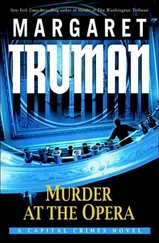Mabel Wagnalls - Stars of the Opera
Здесь есть возможность читать онлайн «Mabel Wagnalls - Stars of the Opera» — ознакомительный отрывок электронной книги совершенно бесплатно, а после прочтения отрывка купить полную версию. В некоторых случаях можно слушать аудио, скачать через торрент в формате fb2 и присутствует краткое содержание. Жанр: foreign_antique, foreign_home, music_dancing, на английском языке. Описание произведения, (предисловие) а так же отзывы посетителей доступны на портале библиотеки ЛибКат.
- Название:Stars of the Opera
- Автор:
- Жанр:
- Год:неизвестен
- ISBN:нет данных
- Рейтинг книги:5 / 5. Голосов: 1
-
Избранное:Добавить в избранное
- Отзывы:
-
Ваша оценка:
- 100
- 1
- 2
- 3
- 4
- 5
Stars of the Opera: краткое содержание, описание и аннотация
Предлагаем к чтению аннотацию, описание, краткое содержание или предисловие (зависит от того, что написал сам автор книги «Stars of the Opera»). Если вы не нашли необходимую информацию о книге — напишите в комментариях, мы постараемся отыскать её.
Stars of the Opera — читать онлайн ознакомительный отрывок
Ниже представлен текст книги, разбитый по страницам. Система сохранения места последней прочитанной страницы, позволяет с удобством читать онлайн бесплатно книгу «Stars of the Opera», без необходимости каждый раз заново искать на чём Вы остановились. Поставьте закладку, и сможете в любой момент перейти на страницу, на которой закончили чтение.
Интервал:
Закладка:
You quite feel yourself a court lady by this time; and when the powdered dignitary again appears and calls out your name in stately tones, you follow him with a sense of importance quite pleasant and unusual. You are led past more columns and through more curtains, until finally he leaves you in a moderate-sized ante-room. Here you wait for some moments, expectantly watching the doorway by which you entered, when suddenly, on the opposite side of the room, some folding-doors which you had not noticed are flung wide open by unseen hands, and behold the queen—of grand opera, Madame Emma Eames!
It was indeed a right royal vision I beheld: a beautiful woman, in every sense of the term, clad in a fawn-colored gown of rich design, and bejeweled with chains of pearls and a brooch of diamonds. She was seated on a pale satin divan, but came forward to greet her visitor, and shook hands cordially. Madame Eames is more than beautiful, for together with regular features and soft curves she has a strong face and a pose of the head that is all determination and force. She is tall and full-figured, her hair is dark, and her eyes are very blue.
She displayed a charming smile as she motioned her visitor to a seat near by, and then followed a rapid sequence of questions and answers. Madame Eames showed a kindly response to her visitor's spirit of earnestness, and tried to tell as much as possible in every reply she made.
First in order of interest is the fact that she was born, August 13, 1867, in Shanghai, China. There's a beginning for you!—enough to crush an ordinary mortal. But Emma Eames took it otherwise; and all who know of her now must admit that to be born under the star of the East on the thirteenth day of the month is after all not bad. As soon as she was old enough to walk she left the land of her birth and came with her mother and father (who was a lawyer of the international courts) to their native home, the city of Bath, in Maine.
Here she studied music with her mother, going later on to Boston and finally to Paris, where she worked with indomitable will studying operas, dramatic action, voice culture, and especially French. This last is very important for those aiming to sing publicly in Paris, for the people there will not tolerate any weakness of pronunciation.
When asked if she ever had time for any social pleasures, Madame Eames answered very earnestly: "I have never done anything in my life but work. I cared for other pleasures just as any girl does, but have always foregone them."
As a result of this ceaseless work she was fitted for the operatic stage in two years' time.
"It was Gounod himself who selected me to sing in his opera 'Romeo and Juliet.' He taught me that music, and also 'Faust.' He was a most lovable old man, so modest, and above all sincere and truth-loving in his music. He often said to me, 'Never degrade music, the one divine language on earth, to express a lie.' When teaching a phrase, instead of dictating, as you would expect so great a man to do, he always asked, 'How do you feel when you hear that? Sing it as you feel it , not what I feel or tell you.' And he could sing so exquisitely! Yes, old as he was, and he had just the smallest possible voice, yet it was delightful to hear."
Madame Eames's tones were tender and thoughtful as she recalled these reminiscences of her beloved master.
The number thirteen looms up again in Madame Eames's history as the date of her great début. It was the evening of March 13, 1889, in the world's most beautiful opera-house, that the swaying pendants of its great chandelier vibrated to the sound of a new voice and the marble walls of its ornate halls reverberated to the sound of a new name—"Emma Eames, la jeune Américaine."
No wonder she made a sensation; she is the ideal Juliet, youthful, beautiful, and with a voice of golden timbre.
A more lovely scene and more tender tragedy has never been depicted in music than is the last act of this opera. The beholder sees in the somber setting of an iron-barred tomb the white-clad form of Juliet lying upon a bier that is raised like an altar above several steps. There are loose flowers still unwithered scattered near the silent sleeper, and one pale torch burns restlessly in a brazier at her head. No other movement; no change on the stage for many minutes.
But the listeners, in this pause, are brought heart to heart with the gentle composer, who sleeps himself now in the Pantheon of Paris. Gounod has enwrapped this scene in ethereal harmonies that make one think of Death not as the King of Terrors, but as the Queen of Repose. The principal melody is a lulling, loving strain that floats and fades away like a final "hush" to rest.
The classic purity of Madame Eames's beauty impresses itself in these moments perhaps more than any other, and the nobility of her voice reveals itself, in the succeeding dramatic climax of the opera, to the fullest.
In speaking now of her début, the singer says that she was very nervous, "for, before the public has approved, you don't feel sure that you know anything. After this, there is some foundation for your nerves to rest on, altho you realize how much there is still to learn. But I am always nervous even yet, never knowing what trick my nerves may play on me. No, my memory gives me no anxiety, for I fortunately have a very reliable one. If by any chance I forget a word on the stage, I know my health is run down, and I then at once take a rest for several days."
But Emma Eames does not take many such rests. Young as she is, she has already sung in twenty-one different operas with unvarying success, in England, France, and Italy as well as her own country. When studying a new rôle she makes every effort to be accurate in all details.
"I always give great thought to my costumes, but when once I have studied thoroughly into the period represented and feel convinced that my designs are correct, I never change them. When one set is shabby I merely have it duplicated."
Little wonder a prima donna has no time for social gayety when you consider all the accessories to her art. Aside from the study and actual performing, she must take proper exercise for her health, must attend rehearsals, give time to the costumer—and, also, to the many interviewers. Madame Eames smiled at this suggestion, and said:
"I don't mind any of these, but I do dread having my photograph taken. We have to put on the entire costumes of different operas: wigs, stockings, gloves, slippers—everything as tho ready to go on with our lines, and all just to stand around in a studio and pose. It is terrible; it takes a whole day sometimes."
A question about her method of study brought forth the fact that at one time she was quite misdirected in the use of her voice.
"I was turned entirely in the wrong direction, and it is no exaggeration to say that I have fought the battle out step by step and note by note all alone—or, rather, in the very presence of the public. When I first appeared my voice-control was uncertain; I did not dare take any liberties with my tones. I was in constant anxiety, and miserable because I had not the power of voice-emission that I wanted. I assure you in those days I was sometimes so discouraged that I thought seriously of giving up my profession."
An astounding assertion this will seem to the thousands of listeners enthralled by her voice to-day. But Madame Eames was very serious, and she added philosophically: "After all, I don't think one can attain anything worth having unless one has suffered deeply."
Every summer Madame Eames takes a six-weeks' vacation in her Italian castle near Florence. I was shown a description of this edifice, which reads like a page of old history. The sullen gray stone walls are six feet thick, and the heavy doors with their great iron hinges are all carved by hand, as indeed is all the workmanship on the place. The main hall of the castle is sixty feet long and twenty-five feet wide. There are four massive fireplaces in this one apartment, and a wooden balcony reached by a broad stairway runs all around the second story of the hall. The ceiling is of carved oak, and a reproduction of a famous one in Florence. Everything is in accord with the traditions of the Middle Ages. Madame Eames takes great delight in this castle, and she has with her numerous photographs of it.
Читать дальшеИнтервал:
Закладка:
Похожие книги на «Stars of the Opera»
Представляем Вашему вниманию похожие книги на «Stars of the Opera» списком для выбора. Мы отобрали схожую по названию и смыслу литературу в надежде предоставить читателям больше вариантов отыскать новые, интересные, ещё непрочитанные произведения.
Обсуждение, отзывы о книге «Stars of the Opera» и просто собственные мнения читателей. Оставьте ваши комментарии, напишите, что Вы думаете о произведении, его смысле или главных героях. Укажите что конкретно понравилось, а что нет, и почему Вы так считаете.












